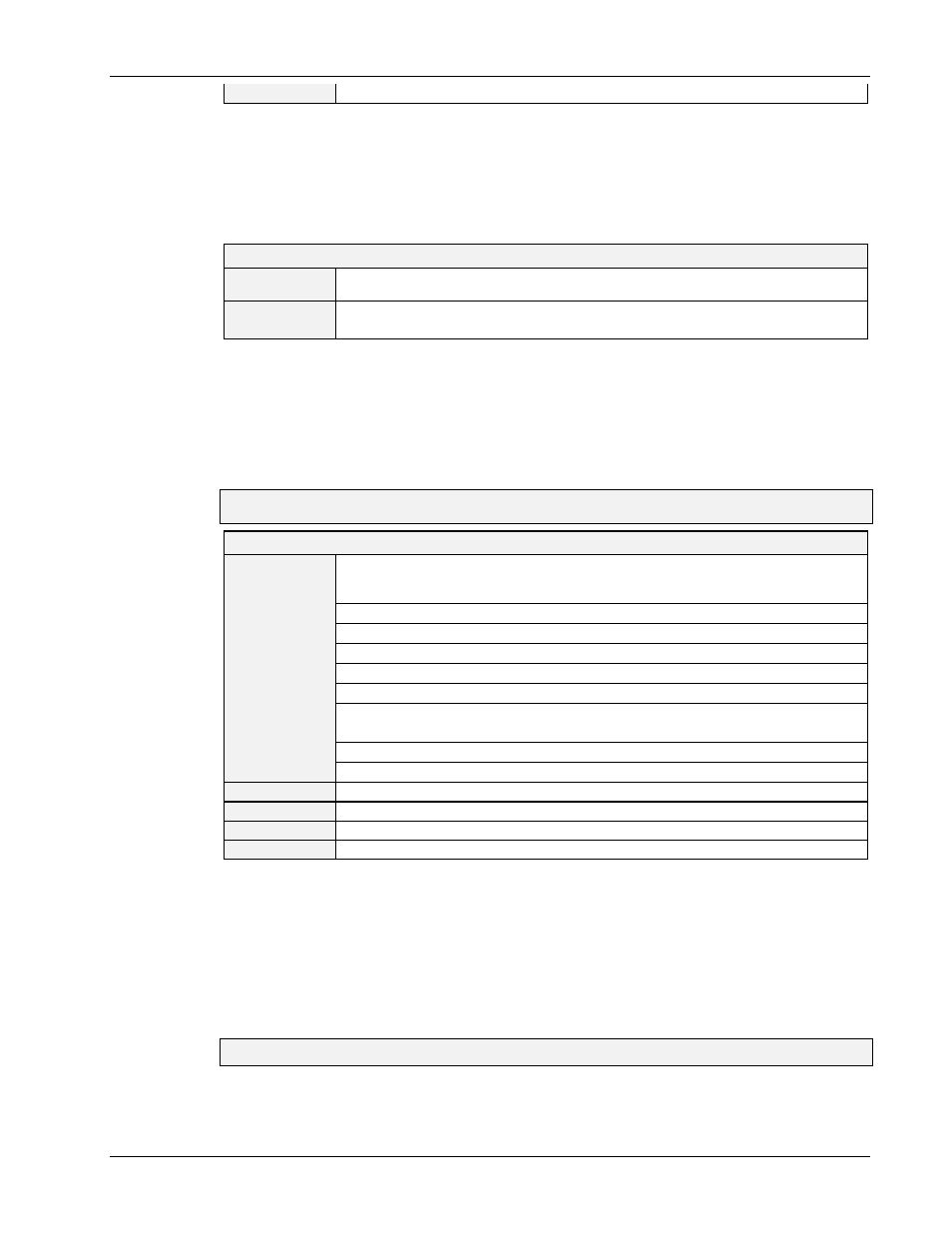Output (peripheral mode) – Measurement Computing Personal488 rev.3.0 For DOS & Windows 3.Xi User Manual
Page 352

III. COMMAND REFERENCES - 15. Command References
15B. Driver488/SUB, W31, W95, & WNT
Personal488 User’s Manual, Rev. 3.0
III-337
OutputX(devHandle,data,strlen(data),1,0,0L,0,0L);
The
OutputMore
function passes the device handle and a pointer to the data buffer to the
OutputX
function. It determines the size of the data buffer provided by the user and passes that value as the
count
parameter. It specifies that the
forceAddr
flag is set
FALSE
, so Driver488 does not re-address
the device if it is the same device as that previously used. The default terminators are chosen by
specifying a
0
pointer as the
terminator
parameter. Synchronous transmission is specified by
sending
0
for the
async
parameter, and the completion status value is ignored by sending a
0
pointer
for the
compStat
pointer.
OutputNMore
SYNTAX
long pascal OutputNMore (DevHandleT devHandle, char *data,
long count);
REMARKS
OutputNMore
is equivalent to the following call to
OutputX
:
OutputX(devHandle,data,0,0,0L,0,0L);
The
OutputNMore
function passes the device handle and a pointer to the data buffer to the
OutputX
function. It specifies that the
forceAddr
flag is set
FALSE
, so Driver488 does not re-address the
device if it is the same device as that previously used. The default terminators are chosen by specifying
a
0
pointer as the
terminator
parameter. Synchronous transmission is specified by sending
0
for the
async
parameter, and the completion status value is ignored by sending a
0
pointer for the
compStat
pointer.
Output (Peripheral Mode)
OutputX
SYNTAX
long pascal OutputX(DevHandleT devHandle, char *data, long
count, bool last, bool forceAddr, TermT *terminator, bool
async, int *compStat);
devHandle
refers to either an interface or an external device.
data
points to the bytes to send.
count
is the number of characters to send.
last
is a flag that forces the device output terminator to be sent with the data.
forceAddr
is ignored.
terminator
is a pointer to a terminator structure that is used to set up the output
terminators. If
terminator
is set to
0
, the default terminator is used.
async
is a flag that allows asynchronous data transfer.
compStat
is a pointer to an integer containing completion status information.
RETURNS
-1 if error; otherwise, the number of characters transferred
MODE
*CA
BUS STATES
Determined by the Controller.
SEE ALSO
Enter, Term, TimeOut, Buffered
In Peripheral mode, the
OutputX
command sends data to the interface under control of the Active
Controller. The Active Controller must put the interface into the Talk state and configure some bus
device to accept the transferred data. The Talk state can be checked with the
Status
command, or can
cause an interrupt via the
Arm
command. A time-out error occurs, if enabled, if no bus device accepts
the data within the time out period after issuing the
OutputX
command. Even as a Peripheral,
Driver488 might be the System Controller. If Driver488 is the System Controller and
AutoRemote
is
enabled, then Driver488 asserts Remote Enable (
REN
) before sending any data. The
OutputX
command in Peripheral mode is otherwise identical to the
OutputX
command in Controller mode.
Additional Output Functions
Driver488 provides additional
Output
routines that are short form versions of the
OutputX
function.
The additional
Output
functions are:
Output
and
OutputN
. In Peripheral mode, the device handle
